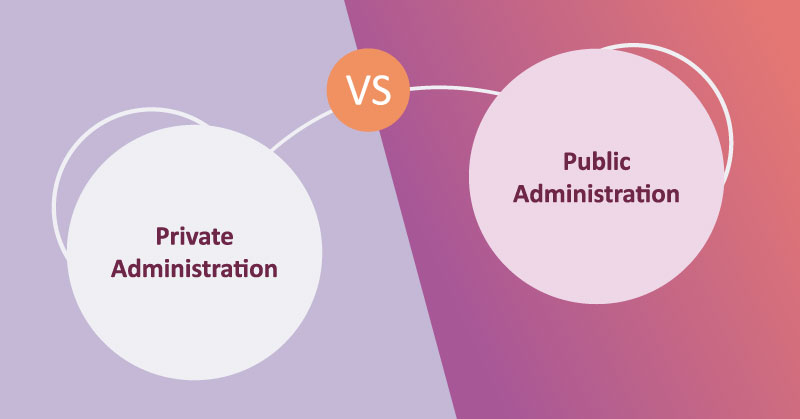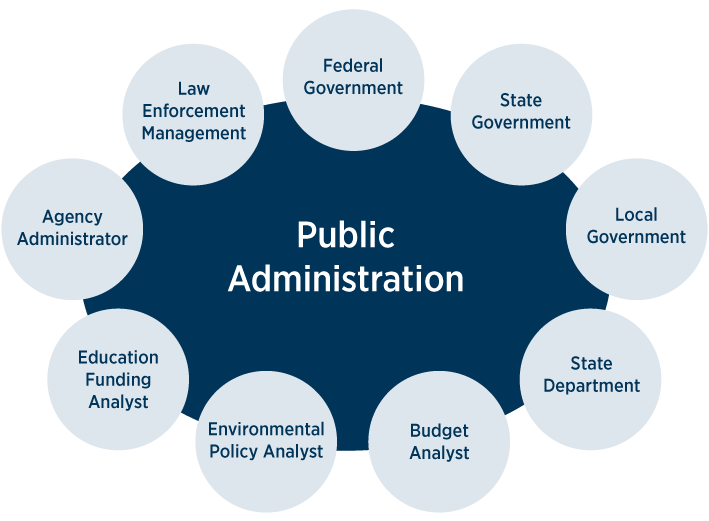Public and Private Management
Everyone knows one difference between public and private management, and that is profit. They also differ in their nature and in the way they are governed. To some, however, the terms “public and private governance” may seem somewhat technical. In fact, they are not terms used in everyday conversation, and you may occasionally hear them used. For them, we will begin by defining public and private government. Of course, their definitions are simple and straightforward, so the difference between them is obvious. The term “administration” refers to the organization and management of a particular thing. Thus, public administration, simply put, refers to the management and organization of public affairs, while private administration refers to the management of private affairs.

What is public administration?
Formally, the term “public administration” is defined as the implementation of government policy or public policy formulated by the executive branch. The concept of public administration is obvious in any country with a government. Think of it as the collective operation, function, and activity of government. Government departments and agencies, ministerial departments, city, town, city, municipal and/or provincial councils, and all other national departments fall within the purview of public administration. Some sources define this as the management of government programs or the fulfillment of political promises made during elections. Public administration includes determining suitable policies and programs for government operations and implementing such programs after careful planning, organization, direction and coordination. The people who perform the functions of public administration are known as public administrators. They include not only elected government officials, but also non-elected officials, such as civil servants who head or work in the above-mentioned departments. These public administrators are charged with the important task of finding reliable, efficient and cost-effective solutions to the challenges and problems facing the public. Other responsibilities include advising elected officials on the appropriateness and effectiveness of certain programs and/or policies, preparing and setting budgets, and the day-to-day operation of government departments.

Public administration affects the entire nation. Thus, its reach is large and complex. The ultimate beneficiary of public administration is the general public, and the goal is to meet the needs of the public while promoting the public good. Such administration is governed by the constitution, laws, rules, and regulations of the country and thus ensures that the government does not act outside the law or abuse its power. Government is generally accountable to the public, and in a democratic country where government is open and monitored, it will be held accountable either through the legislature or through judicial review.
What is private administration?
Private administration is essentially more private and personal in nature. This means that it has nothing to do with the general public. Private administration is the management, administration, and administration of the affairs of a private company or business. In other words, it is the implementation of a company’s policies and goals. Private administration is not political in nature. Putting profit as its main goal, it acts in accordance with market and economic conditions. Thus, private administration involves the planning, organization, and implementation of policies and programs that make a profit. Any activity that is unprofitable for the company or inefficient will be eliminated.
The ultimate beneficiary of private administration is the company itself and, of course, its people. Private administration also helps determine a company’s performance and efficiency. Like public administration, it is governed by certain laws, rules and regulations, but they apply only to the company’s business and conduct. For example, consumer protection laws. Private administration lacks the concept of public responsibility, although we can point to corporate social responsibility as an exception. Thus, as a general rule, a private company is not responsible to the public for its activities. Unlike public administration, the scope of private administration is quite limited and not as large and varied as its public counterpart.

What is the difference between public and private management?
Thus, the difference between public and private management is obvious.
- Public management is political, while private management is not political, but rather more personal.
- The focus of public management is the implementation of public policy, while private management is concerned with the implementation of company policy, the main focus of which is profit.
- Public policies and programs are oriented toward the public. Thus, public administration seeks to promote the general welfare and good of the public and to meet their needs.
- Private administration focuses on making profits, expanding company growth and development, and ensuring business prosperity.
- Public administration activities and operations are governed by a legal framework designed to prevent the abuse of power, unequal and unfair treatment of the public. In addition, public administration officials are accountable to the public for their actions.
- Private management, by contrast, has no concept of accountability to the public, and its scope is more limited.
